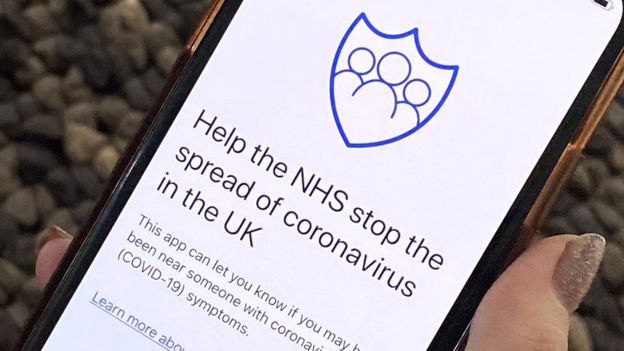Future of UK's COVID-19 contact-tracing app in doubt after teething problems

Barely a week has gone past since the government began piloting its COVID-19 contact-tracing app on the Isle of Wight, and the project already seems to be in trouble.
Already under fire for its dithering and inconsistent response to the coronavirus pandemic, health secretary Matt Hancock last week presented the app as a key part of the government’s plans to bring the nation out of lockdown.
In the absence of a vaccine, tracking and tracing people infected with the SARS-CoV-2 virus has been credited with bringing the COVID-19 outbreak under control in countries such as South Korea.
Contact-tracing smartphone apps use wireless signals such as Bluetooth to exchange a ‘digital handshake’ with another user when they come within a set distance of each other for a particular length of time – 2 metres and 15 minutes in the case of the UK app.
The app logs the contact, encrypts it, and notifies the user if they have had close contact with another user who has tested positive – and chosen to update their status on the app of course – giving them advice to self-isolate.
But there were doubts about the UK government’s app from the outset, as it is based on a system where data is stored on a centralised server.
More than 40,000 people on the island have been testing the app for a week, but many residents reported issues with downloading and receiving false alerts.
An alternative decentralised system developed by Google and Apple has already been adopted by several European countries including, Germany, the Republic of Ireland, and Switzerland.
Using this system phones directly communicate with each other, and the app does not capture location data.
According to press reports the app has split opinion on the Isle of Wight where around 40,000 people have downloaded it – some people are happy to use it to help the effort against COVID-19, while others are concerned about privacy.
The app was designed by NHSX, the health service’s digital reform organisation, but according to netimperative NHSX is already working on a second smartphone app because of the multiple issues that have sprung up with the Isle of Wight pilot.
Head of NHSX Matthew Gould said the second app is being made “in parallel” and is less reliant on a central database.
Privacy is a major concern with the government’s centralised design, as there are fears that the mine of information about individuals’ COVID-19 status and location could be hacked.
The advantage is that the centralised approach allows the progress of the disease to be tracked, something that cannot be achieved with the decentralised approach taken by Google and Apple.
However the issue about privacy with the Google and Apple approach is reduced because data is only stored on an individual’s smartphone.
But in typically confusing fashion the communities secretary Robert Jenrick told the Andrew Marr show on Sunday that he was “not aware” that the government is developing a second COVID contact tracing app.
As latest figures revealed the UK’s COVID-19 death toll exceeds 32,000, those hoping for a joined-up response to the crisis can look elsewhere.












